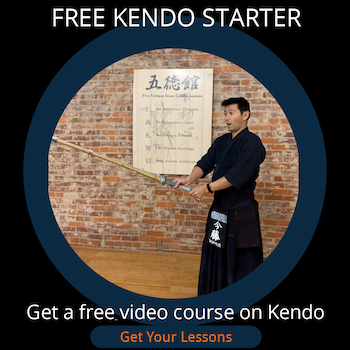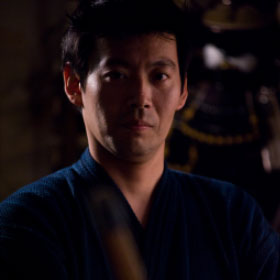Need Kendo Instructions?
You Got It!
You Got It!
Response to Podcast 170: 'Non-Japanese Don't Understand Kendo?'
by Tadakatsu
(Michigan, U.S.A.)
I agree with your thoughts in your podcast 170 that it is ‘rubbish’ that Japanese people inherently understand kendo better than non-Japanese, but I agree with you for somewhat different reasons.
Kendo is a martial art (obviously) – that’s two parts: ‘martial’ and ‘art’. For the ‘martial’ side, any warrior with dedication and discipline can learn the techniques of any weapon that he applies himself to learn. The Japanese may have developed kendo’s waza (for which I am appreciative), but there is nothing specifically Japanese about them.
As for the ‘art’ side, the main components are Zen, Mono No Aware, Confucianism, and a dollop of mysticism from Shinto (the deification of the sword, etc.). Modern Japanese do not have a significant advantage in understanding these tenets of bushido because they have chosen over time to essentially abandon everything about religion except its form. Though they keep some outward rituals, the average modern Japanese has no deeper understanding of Buddhism, Confucianism (not a religion, but has been treated as one), or Shinto than a foreigner who has studied these academically – in fact the foreigner may have the advantage here. Furthermore, since kendo is the legacy of the samurai and the meaning of ‘samurai’ is ‘to serve’, a dedicated Christian foreigner may well understand both the hierarchical and true heart approaches to servanthood better than the average modern Japanese.
All kendoka everywhere are indebted to Japan for the culture and ethos that gave rise to kendo, but in this modern era the Japanese have no greater grip on bushido or kendo than anyone else.
Click here to read or post comments

